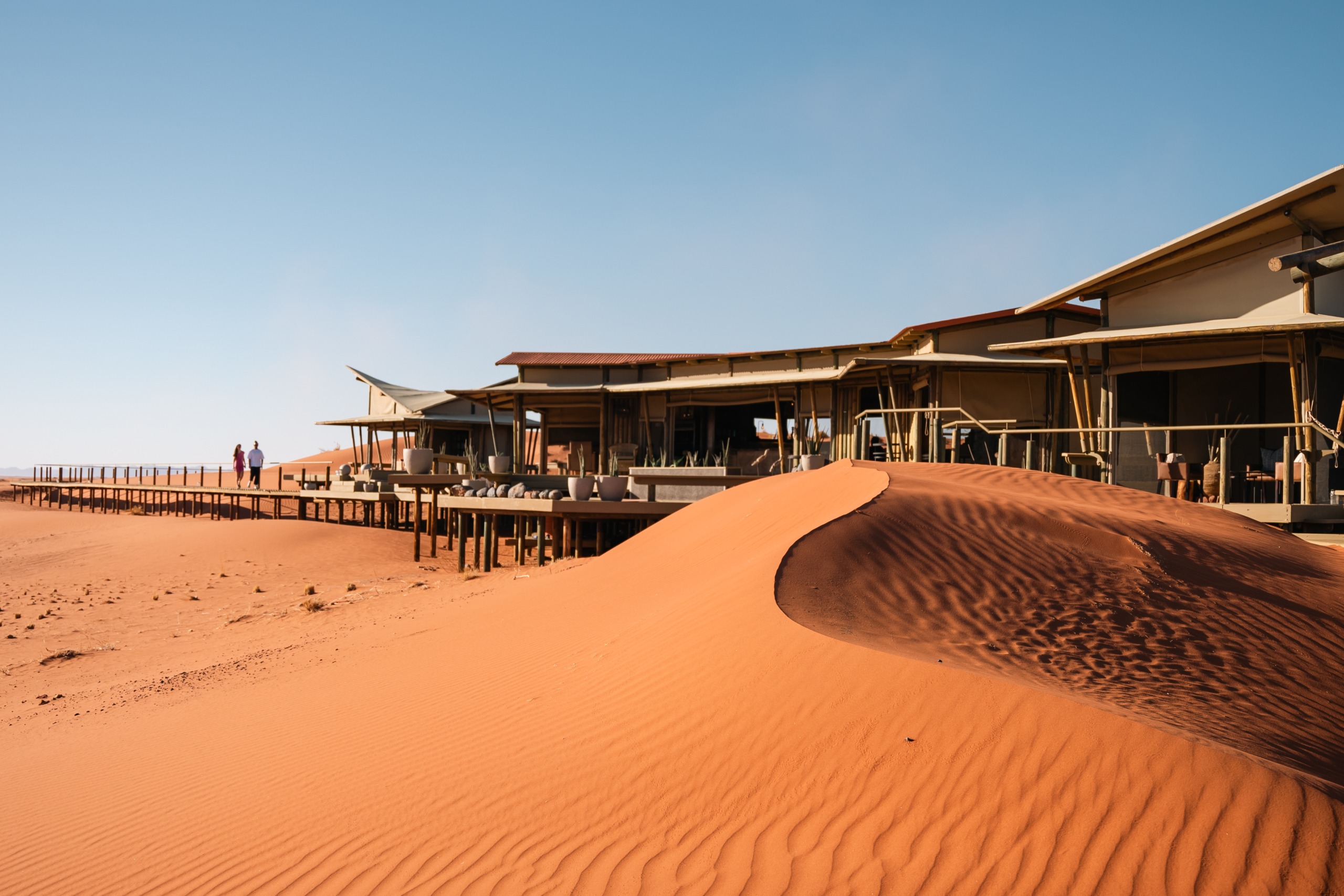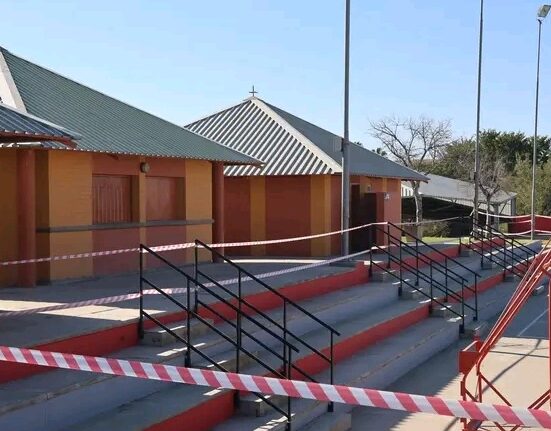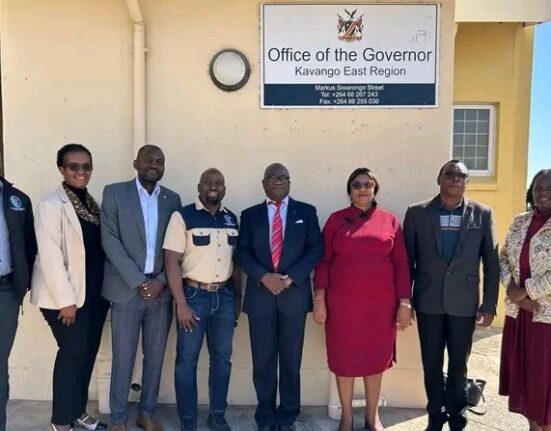Namibia, a country renowned for its breathtaking landscapes—from the towering dunes of the Namib Desert to the rugged beauty of the Kaokoveld—has become a global icon for eco-tourism. As travelers increasingly seek more sustainable ways to explore the world, Namibia’s eco-friendly lodges are leading the charge in responsible tourism, offering visitors an authentic experience while preserving the environment and supporting local communities.
From luxurious tented camps nestled between the sand dunes to remote lodges built from natural, sustainable materials, Namibia’s eco-lodges are making strides in both reducing their environmental impact and promoting the conservation of its unique ecosystems. This article delves into the concept of eco-friendly lodges in Namibia, exploring how they are contributing to sustainable tourism while offering unforgettable experiences in one of the world’s most captivating wildernesses.
What Are Eco-Friendly Lodges?
Eco-friendly lodges are accommodations that prioritize sustainability in every aspect of their design, construction, and operation. These lodges aim to minimize their environmental impact while offering guests an opportunity to experience nature without causing harm to the ecosystem.
Key features of eco-lodges include:
- Energy Efficiency: Eco-lodges utilize renewable energy sources like solar power and wind energy to reduce their carbon footprint. Many lodges in Namibia rely on solar panels to generate electricity, ensuring that the power supply is both sustainable and reliable, especially in remote areas where the national grid may not reach.
- Water Conservation: Water is a precious resource in Namibia, with much of the country characterized by arid conditions. Eco-lodges often incorporate rainwater harvesting systems, water-efficient fixtures, and greywater recycling to minimize water usage.
- Sustainable Building Materials: The use of natural, locally sourced materials, such as stone, mud, and wood, helps lodges blend into their surroundings while reducing the environmental impact of construction. This approach also reduces the need for transporting materials over long distances, further lowering the carbon footprint.
- Waste Reduction: Eco-lodges are committed to minimizing waste by implementing recycling programs, composting organic waste, and using biodegradable products. Some lodges even strive for zero waste by reducing packaging and reusing materials.
- Community Engagement: A core principle of eco-friendly lodges is their support for local communities. This can include hiring local staff, sourcing food from nearby farmers, and promoting cultural heritage through tours and experiences led by indigenous guides.
In Namibia, eco-lodges aren’t just about providing a comfortable stay for guests—they’re about fostering a deeper connection between the visitor and the environment. With its focus on sustainability, Namibia offers travelers a way to enjoy some of the planet’s most unique landscapes without leaving a lasting environmental footprint.
Top Eco-Friendly Lodges in Namibia
Several eco-friendly lodges in Namibia are helping to set the standard for sustainable tourism, and these accommodations have become sought-after destinations for travelers seeking to minimize their ecological impact while exploring the country’s natural wonders.
1. Wolwedans Desert Lodge: A Desert Oasis
Located in the NamibRand Nature Reserve, Wolwedans Desert Lodge is a prime example of sustainable luxury in the desert. The lodge features a collection of spacious, tented chalets elevated on wooden decks, offering panoramic views of the surrounding Namib Desert. The design of the lodge blends seamlessly into the environment, using locally sourced materials to minimize environmental impact.
- Sustainability Features: Wolwedans is powered by solar energy, and its water supply is sourced through a combination of rainwater harvesting and groundwater. The lodge also takes care to reduce waste, compost organic matter, and recycle materials.
- Conservation Efforts: The NamibRand Nature Reserve is a privately managed conservation area that works to protect Namibia’s endangered species, including the cheetah and desert-adapted elephant. The lodge contributes to conservation efforts by participating in research, habitat restoration, and wildlife monitoring programs.
2. Little Kulala Lodge: A Desert Escape with Sustainability at Its Core
Set against the backdrop of Sossusvlei’s towering dunes, Little Kulala Lodge offers a perfect blend of luxury and eco-consciousness. This intimate lodge, part of the Wilderness Safaris group, operates in Namib-Naukluft National Park and is designed with sustainability at the forefront.
- Sustainability Features: The lodge’s design incorporates solar panels and wind turbines for energy, along with water-saving technologies, including low-flow taps and showers. The materials used in construction were carefully selected to blend with the natural environment, minimizing the lodge’s footprint.
- Conservation Efforts: Wilderness Safaris’ Conservation in Action program supports numerous conservation initiatives, including predator monitoring and research on desert-adapted elephants. Additionally, the lodge employs local staff and supports community development through various programs.
3. Doro Nawas Camp: Remote, Rustic, and Eco-Friendly
Located in the rugged Damaraland region, Doro Nawas Camp offers an immersive experience in one of Namibia’s most remote areas. The camp is situated on a private conservancy and offers guests the chance to experience the desert’s quiet beauty while contributing to conservation and sustainable tourism.
- Sustainability Features: The lodge is powered by solar energy, and all water is sourced from sustainable wells on the property. The use of local materials such as rock and timber allows the camp to blend in naturally with the surrounding environment. Waste is carefully managed, and the camp strives to operate as eco-efficiently as possible.
- Conservation Efforts: Doro Nawas supports wildlife conservation efforts in the region, particularly the protection of desert-adapted wildlife such as the black rhino and elephants. By staying at the lodge, guests are directly supporting efforts to preserve this unique ecosystem.
4. Sossusvlei Desert Lodge: An Oasis of Sustainability
Located near Sossusvlei, one of the world’s most iconic natural wonders, Sossusvlei Desert Lodge combines cutting-edge technology with sustainable practices. This ecotourism destination offers a unique opportunity to experience the Namib Desert’s beauty while minimizing one’s impact on the environment.
- Sustainability Features: The lodge runs on solar power, and water conservation is a top priority, with systems in place to recycle and reuse water. The lodge’s buildings are designed to blend seamlessly with the desert landscape, using natural materials and minimal construction to preserve the land.
- Conservation Efforts: Sossusvlei Desert Lodge is located in the NamibRand Nature Reserve, which is committed to preserving the desert’s unique ecosystem. The reserve supports conservation research, especially in relation to the desert’s fragile wildlife populations, and offers guests the opportunity to take part in environmental education programs.
5. Skeleton Coast Camp: Living in Harmony with the Desert
Perched on the edge of the Skeleton Coast, one of the most remote and inhospitable places on earth, Skeleton Coast Camp offers an eco-conscious way to experience the desert’s dramatic landscapes. The camp is located in a private concession within the Skeleton Coast National Park, offering guests an unparalleled sense of solitude.
- Sustainability Features: The camp is powered by solar energy, and its water is sourced from a sustainable borehole. The tents and other structures are built using locally sourced materials, minimizing the need for transport and reducing the camp’s environmental impact.
- Conservation Efforts: Skeleton Coast Camp is dedicated to wildlife conservation, particularly for the desert-adapted elephants, lions, and other species that inhabit this arid region. The camp also works closely with the Namibian Ministry of Environment and Tourism on conservation initiatives, contributing to both the protection of wildlife and the local community.
Why Choose an Eco-Friendly Lodge in Namibia?
Choosing to stay in an eco-friendly lodge in Namibia is not only a way to experience the country’s diverse ecosystems but also a powerful way to contribute to the preservation of its natural and cultural heritage. Here are a few reasons why eco-lodges are a great choice for responsible travelers:
- Minimizing Environmental Impact: Eco-lodges are designed to reduce their carbon footprint, minimize waste, and preserve local ecosystems. Staying at one of these lodges ensures that your visit does not contribute to environmental degradation.
- Supporting Local Communities: Many eco-lodges partner with local communities, providing employment and supporting economic development through community-based initiatives. By staying at an eco-lodge, you are helping to improve the livelihoods of Namibians living in rural areas.
- Conservation and Education: Eco-lodges play a crucial role in wildlife conservation, supporting efforts to protect endangered species and restore degraded habitats. They also educate visitors about the importance of sustainability, conservation, and eco-friendly practices.
- Authentic Experiences: Eco-lodges offer unique, immersive experiences that allow travelers to connect with nature in a meaningful way. From guided wildlife safaris to stargazing under the vast desert skies, these lodges provide unforgettable adventures.
Namibia’s eco-friendly lodges offer a blueprint for sustainable tourism in the 21st century. By integrating renewable energy, water conservation, responsible waste management, and community engagement, these lodges are demonstrating that it is possible to travel responsibly while enjoying the stunning beauty of the desert.
As more travelers seek out destinations that prioritize sustainability, Namibia’s eco-lodges are becoming a shining example of how tourism can benefit both the environment and local communities. Whether you’re marveling at the red dunes of Sossusvlei, tracking desert elephants in Damaraland, or experiencing the solitude of the Skeleton Coast, Namibia’s eco-friendly lodges provide an unforgettable journey that leaves a positive impact. By choosing an eco-friendly lodge, travelers can play a vital role in preserving Namibia’s pristine wilderness for generations to come. For those looking to combine luxury, adventure, and sustainability, Namibia is undoubtedly one of the world’s most inspiring destinations.
Join 'Namibia Today' WhatsApp Channel
Get the breaking news in Namibia — direct to your WhatsApp.
CLICK HERE TO JOIN












